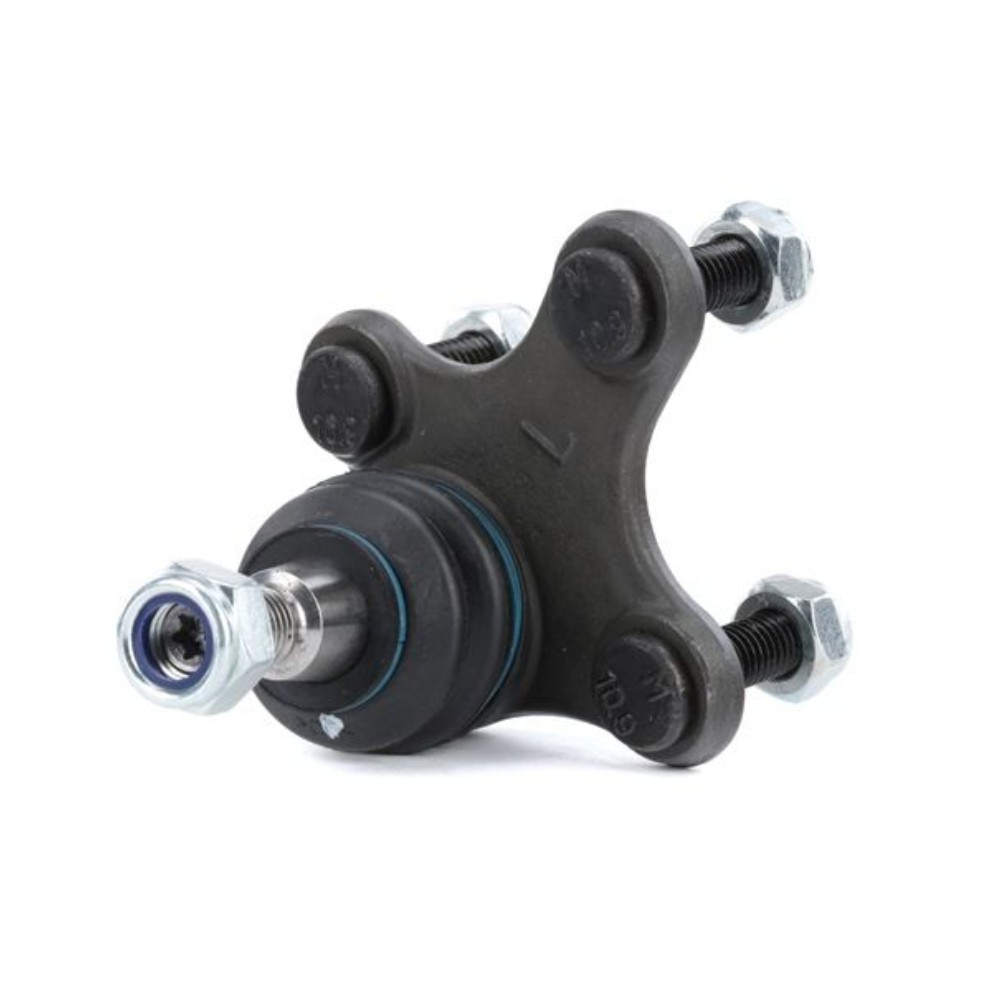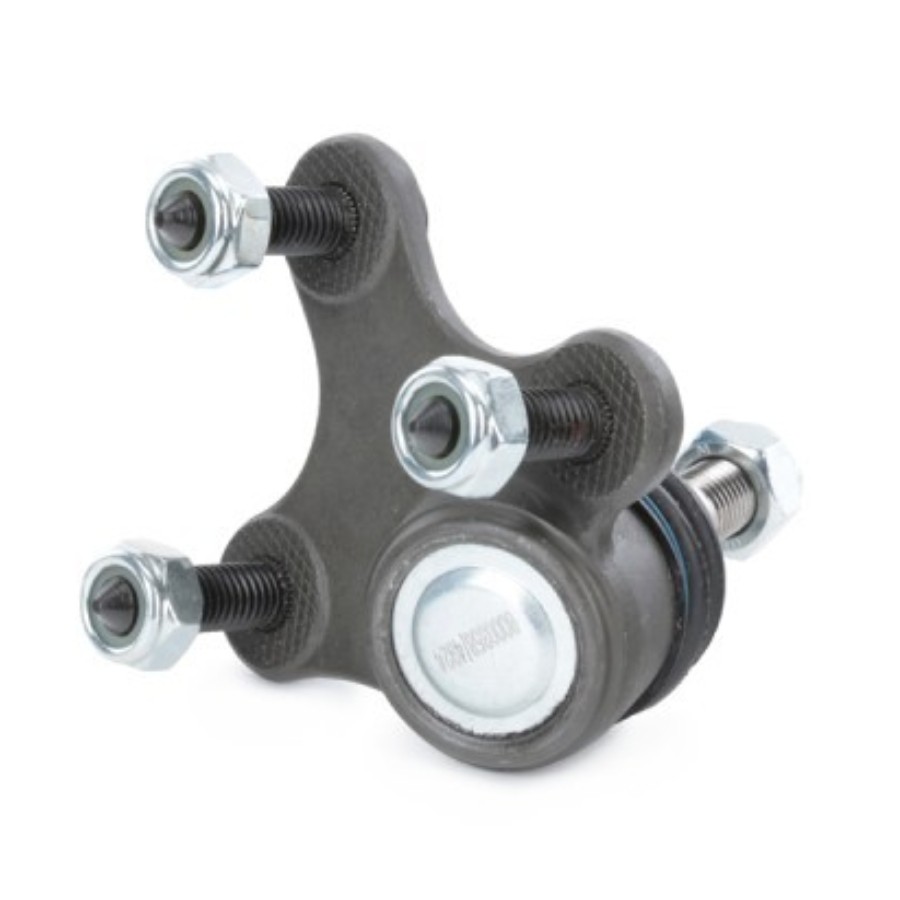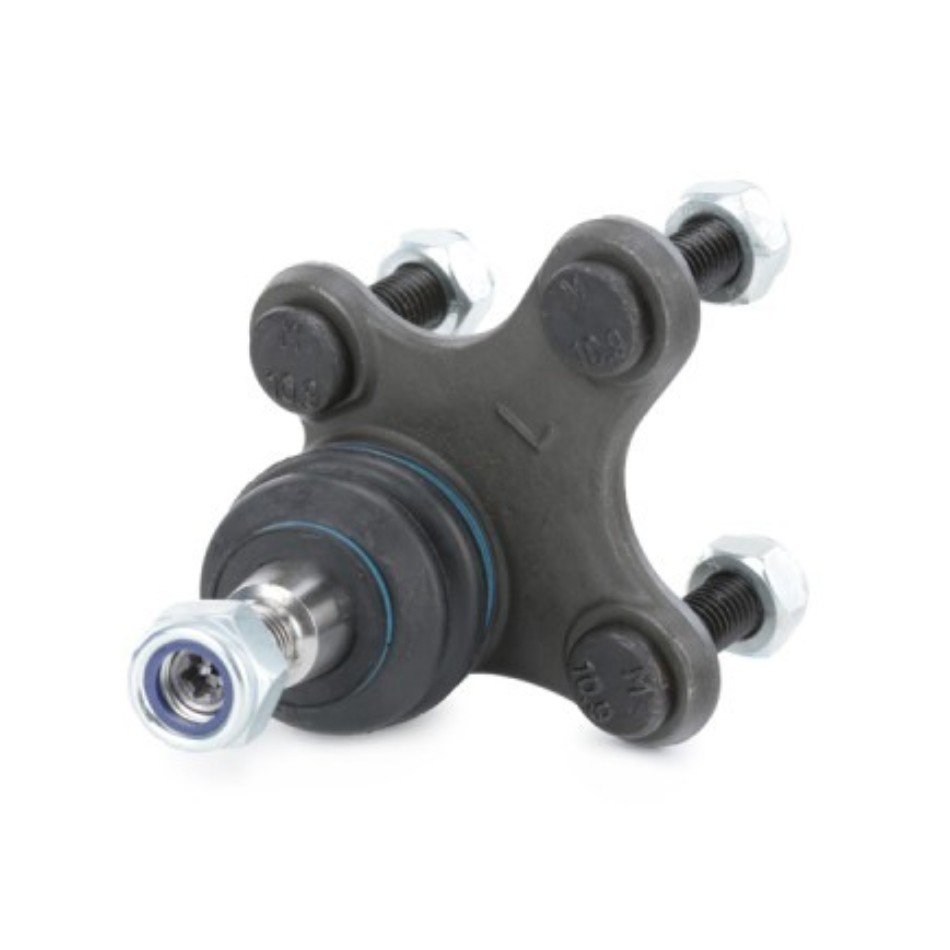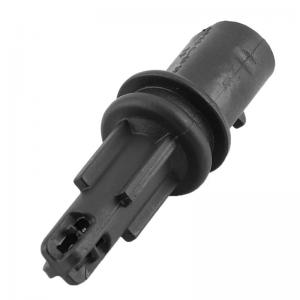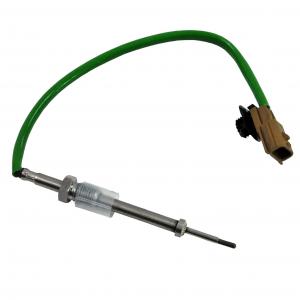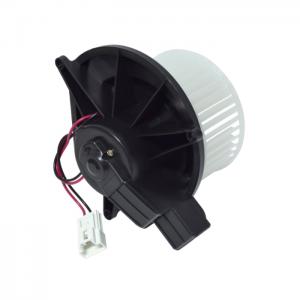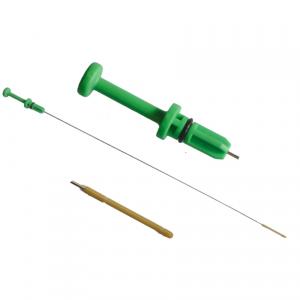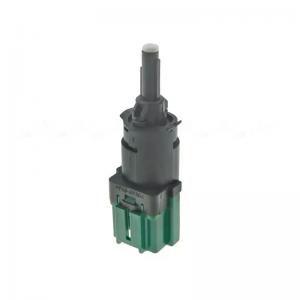Ball Joint
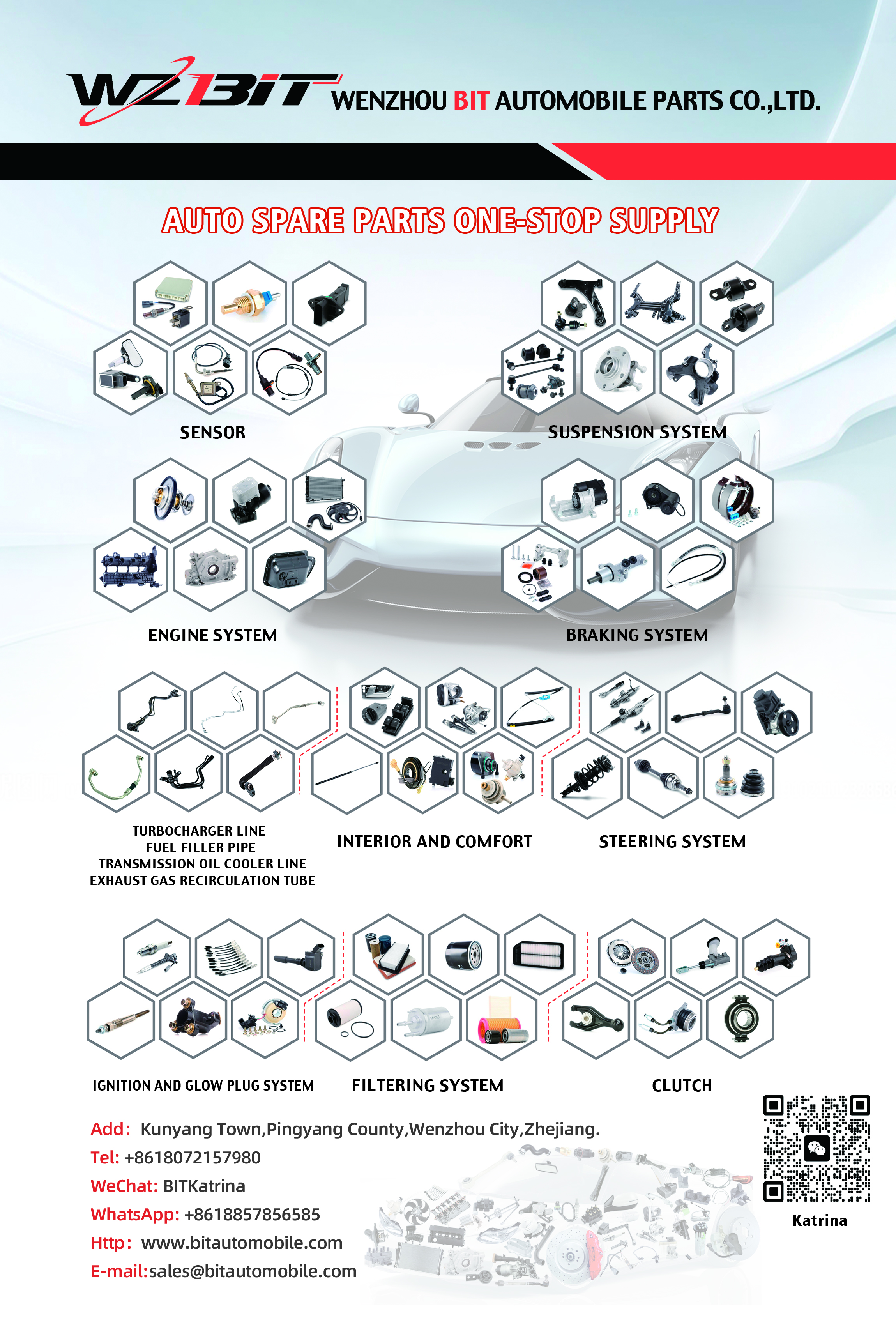
A ball joint is a pivotal component of a vehicle's suspension system that connects the steering knuckle to the control arms.
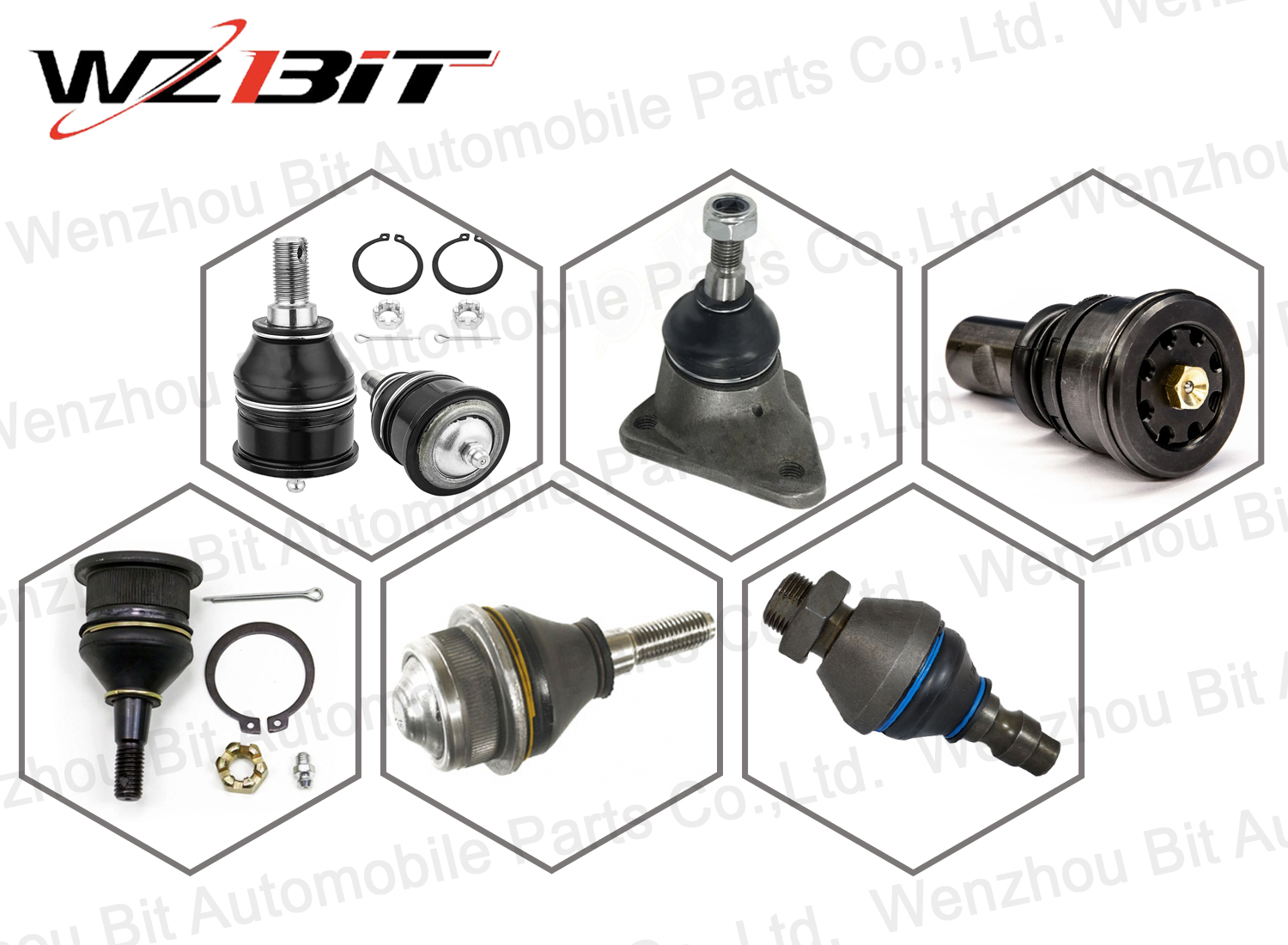
OE Number
1K0407365B
5Q0407365B
1K0407365C
5QM407365A
1K0407365E
5Q0407365E
1KD407365
5WA407365
5Q0407365A
5QM407365E
Compatible Applications
AUDI A1 Citycarver (GBH) (Year of Construction 07.2019 - ..., 95 - 150 PS, Petrol)
AUDI A1 Sportback (GBA) (Year of Construction 07.2018 - ..., 95 - 207 PS, Petrol)
AUDI A3 Convertible (8P7) (Year of Construction 04.2008 - 05.2013, 102 - 200 PS, Diesel, Petrol)
AUDI A3 Convertible (8V7, 8VE) (Year of Construction 10.2013 - ..., 110 - 310 PS, Diesel, Petrol)
AUDI A3 Hatchback (8P1) (Year of Construction 05.2003 - 08.2012, 90 - 265 PS, Diesel, Petrol, Petrol/Ethanol)
AUDI A3 Hatchback (8V1, 8VK) (Year of Construction 04.2012 - ..., 105 - 310 PS, Diesel, Petrol)
AUDI A3 Saloon (8VS, 8VM) (Year of Construction 05.2013 - ..., 105 - 400 PS, Diesel, Petrol)
AUDI A3 Sportback (8PA) (Year of Construction 09.2004 - 03.2013, 90 - 340 PS, Diesel, Petrol, Petrol/Ethanol)
AUDI A3 Sportback (8VA, 8VF) (Year of Construction 09.2012 - ..., 105 - 400 PS, Diesel, Petrol, Petrol/Electro, Petrol/Natural Gas (CNG))
AUDI Q2 (GAB) (Year of Construction 06.2016 - ..., 110 - 300 PS, Diesel, Petrol)
AUDI Q3 (8UB, 8UG) (Year of Construction 06.2011 - ..., 120 - 367 PS, Diesel, Petrol, Petrol/Ethanol)
AUDI Q3 (F3B) (Year of Construction 10.2019 - ..., 150 - 400 PS, Petrol, Petrol/Electro)
SEAT Altea (5P1) (Year of Construction 03.2004 - ..., 86 - 200 PS, Diesel, Petrol, Petrol/Petroleum Gas (LPG))
SEAT Altea XL (5P5, 5P8) (Year of Construction 10.2006 - ..., 86 - 211 PS, Diesel, Petrol, Petrol/Ethanol, Petrol/Petroleum Gas (LPG))
SEAT Arona (KJ7) (Year of Construction 07.2017 - ..., 95 - 150 PS, Diesel, Petrol)
SEAT Ateca (KH7) (Year of Construction 04.2016 - ..., 110 - 190 PS, Diesel, Petrol)
SEAT Ibiza V (KJ1) (Year of Construction 01.2017 - ..., 80 - 150 PS, Diesel, Petrol, Petrol/Natural Gas (CNG))
SEAT Leon Box Body / Hatchback (5F1) (Year of Construction 09.2012 - ..., 86 - 300 PS, Diesel, Petrol)
SEAT Leon II Hatchback (1P1) (Year of Construction 05.2005 - 08.2013, 86 - 265 PS, Diesel, Petrol, Petrol/Ethanol, Petrol/Petroleum Gas (LPG))
SEAT Leon III Hatchback (5F1) (Year of Construction 09.2012 - ..., 86 - 310 PS, Diesel, Petrol, Petrol/Natural Gas (CNG))
SEAT Leon III SC (5F5) (Year of Construction 01.2013 - ..., 86 - 300 PS, Diesel, Petrol)
SEAT Leon III ST (5F8) (Year of Construction 09.2012 - ..., 86 - 300 PS, Diesel, Petrol, Petrol/Natural Gas (CNG))
SEAT Leon IV (KL1) (Year of Construction 11.2019 - ..., 90 - 204 PS, Diesel, Petrol, Petrol/Compressed Natural Gas (CNG), Petrol/Electric)
SEAT Leon IV Sportstourer (KL8) (Year of Construction 03.2020 - ..., 90 - 204 PS, Diesel, Petrol, Petrol/Compressed Natural Gas (CNG), Petrol/Electric)
SEAT Leon ST Box Body / Estate (5F8) (Year of Construction 01.2013 - ..., 86 - 300 PS, Diesel, Petrol)
SEAT Toledo III (5P2) (Year of Construction 04.2004 - 05.2009, 86 - 200 PS, Diesel, Petrol)
SKODA Fabia IV Hatchback (PJ3) (Year of Construction 06.2021 - ..., 65 - 150 PS, Petrol)
SKODA Kamiq (NW4) (Year of Construction 07.2019 - ..., 90 - 150 PS, Diesel, Petrol, Petrol/Compressed Natural Gas (CNG))
SKODA Octavia II Combi (1Z5) (Year of Construction 02.2004 - 06.2013, 75 - 200 PS, Diesel, Petrol, Petrol/Ethanol, Petrol/Petroleum Gas (LPG))
SKODA Octavia II Hatchback (1Z3) (Year of Construction 02.2004 - 06.2013, 75 - 200 PS, Diesel, Petrol, Petrol/Ethanol, Petrol/Petroleum Gas (LPG))
SKODA Octavia III Combi (5E5) (Year of Construction 11.2012 - ..., 86 - 245 PS, Diesel, Petrol, Petrol/Natural Gas (CNG))
SKODA Octavia III Hatchback (5E3, NL3, NR3) (Year of Construction 11.2012 - ..., 86 - 245 PS, Diesel, Petrol, Petrol/Natural Gas (CNG))
SKODA Octavia IV Combi (NX5) (Year of Construction 11.2019 - ..., 110 - 245 PS, Diesel, Petrol, Petrol/Compressed Natural Gas (CNG), Petrol/Electric)
SKODA Octavia IV Saloon (NX3) (Year of Construction 01.2020 - ..., 110 - 245 PS, Diesel, Petrol, Petrol/Compressed Natural Gas (CNG), Petrol/Electric)
SKODA Scala Hatchback (Year of Construction 02.2019 - ..., 90 - 150 PS, Diesel, Petrol, Petrol/Compressed Natural Gas (CNG))
SKODA Superb II Estate (3T5) (Year of Construction 10.2009 - 05.2015, 105 - 260 PS, Diesel, Petrol)
SKODA Superb II Hatchback (3T4) (Year of Construction 03.2008 - 05.2015, 105 - 260 PS, Diesel, Petrol)
SKODA Yeti (5L) (Year of Construction 05.2009 - 12.2017, 105 - 170 PS, Diesel, Petrol)
VW Beetle Convertible (5C7, 5C8) (Year of Construction 12.2011 - 07.2019, 105 - 220 PS, Diesel, Petrol)
VW Beetle Hatchback (5C1, 5C2) (Year of Construction 04.2011 - 07.2019, 105 - 220 PS, Diesel, Petrol)
VW Caddy Alltrack IV Kombi (SAB) (Year of Construction 05.2015 - ..., 75 - 150 PS, Diesel, Petrol, Petrol/Natural Gas (CNG))
VW Caddy Alltrack IV Van (SAA) (Year of Construction 05.2015 - ..., 75 - 140 PS, Diesel, Petrol)
VW Caddy III Estate (2KB, 2KJ, 2CB, 2CJ) (Year of Construction 03.2004 - 05.2015, 65 - 170 PS, CNG, Diesel, Petrol, Petrol/Petroleum Gas (LPG))
VW Caddy III Van (2KA, 2KH, 2CA, 2CH) (Year of Construction 03.2004 - 05.2015, 70 - 170 PS, CNG, Diesel, Petrol, Petrol/Petroleum Gas (LPG))
VW Caddy IV Kombi (SAB, SAJ) (Year of Construction 05.2015 - ..., 75 - 150 PS, Diesel, Electric, Petrol, Petrol/Natural Gas (CNG))
VW Caddy IV Van (SAA, SAH) (Year of Construction 05.2015 - ..., 75 - 150 PS, Diesel, Electric, Petrol, Petrol/Natural Gas (CNG))
VW Eos (1F7, 1F8) (Year of Construction 03.2006 - 08.2015, 115 - 260 PS, Diesel, Petrol)
VW Golf Plus / Crossgolf (5M1, 521) (Year of Construction 12.2004 - 12.2013, 75 - 170 PS, Diesel, Petrol, Petrol/Ethanol, Petrol/Petroleum Gas (LPG))
VW Golf Sportsvan (AM1, AN1) (Year of Construction 02.2014 - ..., 86 - 150 PS, Diesel, Petrol, Petrol/Ethanol)
VW Golf V Hatchback (1K1) (Year of Construction 10.2003 - 02.2009, 75 - 250 PS, Diesel, Petrol, Petrol/Ethanol)
VW Golf V Variant (1K5) (Year of Construction 06.2007 - 07.2009, 80 - 200 PS, Diesel, Petrol, Petrol/Ethanol)
VW Golf VI Convertible (517) (Year of Construction 03.2011 - 05.2016, 105 - 265 PS, Diesel, Petrol)
VW Golf VI Hatchback (5K1) (Year of Construction 10.2008 - 11.2013, 80 - 270 PS, Diesel, Electric, Petrol, Petrol/Ethanol, Petrol/Petroleum Gas (LPG))
VW Golf VI Variant (AJ5) (Year of Construction 07.2009 - 07.2013, 80 - 200 PS, Diesel, Petrol, Petrol/Ethanol, Petrol/Petroleum Gas (LPG))
VW Golf VII Alltrack (BA5, BV5) (Year of Construction 12.2014 - ..., 110 - 184 PS, Diesel, Petrol)
VW Golf VII Hatchback (5G1, BQ1, BE1, BE2) (Year of Construction 08.2012 - ..., 86 - 360 PS, Diesel, Electric, Petrol, Petrol/Electric, Petrol/Electro, Petrol/Ethanol, Petrol/Natural Gas (CNG))
VW Golf VII Variant (BA5, BV5) (Year of Construction 04.2013 - ..., 86 - 360 PS, Diesel, Petrol, Petrol/Ethanol, Petrol/Natural Gas (CNG))
VW Golf VIII Hatchback (CD1) (Year of Construction 07.2019 - ..., 90 - 333 PS, Diesel, Petrol, Petrol/Compressed Natural Gas (CNG), Petrol/Electric)
VW Golf VIII Variant (Year of Construction 08.2020 - ..., 90 - 320 PS, Diesel, Petrol, Petrol/Compressed Natural Gas (CNG), Petrol/Electric)
VW Jetta Mk5 (1K) (Year of Construction 09.2004 - 10.2010, 90 - 200 PS, Diesel, Petrol, Petrol/Ethanol)
VW Jetta Mk6 (162, 163, AV3, AV2) (Year of Construction 04.2010 - ..., 86 - 211 PS, Diesel, Petrol, Petrol/Electro)
VW Jetta Mk7 Saloon (BU3) (Year of Construction 12.2017 - ..., 150 PS, Petrol)
VW Polo VI (AW1, BZ1) (Year of Construction 06.2017 - ..., 65 - 207 PS, Diesel, Petrol, Petrol/Natural Gas (CNG))
VW Scirocco III (137, 138) (Year of Construction 05.2008 - 11.2017, 122 - 280 PS, Diesel, Petrol)
VW T-Cross (C11_) (Year of Construction 12.2018 - ..., 95 - 116 PS, Diesel, Petrol)
VW T-Roc (A11) (Year of Construction 07.2017 - ..., 110 - 300 PS, Diesel, Petrol)
VW T-Roc Convertible (AC7) (Year of Construction 12.2019 - ..., 116 - 150 PS, Petrol)
VW Taigo (CS1) (Year of Construction 09.2021 - ..., 95 - 150 PS, Petrol)
VW Taos (CL1) (Year of Construction 10.2020 - ..., 150 PS, Petrol)
VW Tiguan I (5N) (Year of Construction 09.2007 - 07.2018, 110 - 211 PS, Diesel, Petrol)
VW Touran I (1T1, 1T2) (Year of Construction 02.2003 - 05.2010, 90 - 170 PS, CNG, Diesel, Petrol, Petrol/Petroleum Gas (LPG))
VW Touran I (1T3) (Year of Construction 05.2010 - 05.2015, 90 - 177 PS, Diesel, Petrol, Petrol/Natural Gas (CNG))
Construction
Ball joints typically consist of:
- Ball Stud: A spherical bearing that allows rotational movement in multiple axes.
- Socket: A socket or housing that encases the ball stud, providing support and allowing movement.
- Boot: A protective boot made of rubber or polyurethane that covers the ball joint to prevent dirt, debris, and moisture from entering and causing premature wear.
- Grease Fitting: Some ball joints have a grease fitting to allow lubrication, enhancing longevity and performance.
Operation
1. Pivotal Movement: Ball joints allow the suspension and steering components to pivot and move vertically as the vehicle encounters bumps and irregularities on the road.
2. Steering Responsiveness: They facilitate smooth steering movement by allowing the wheels to turn left and right while maintaining stability.
3. Load Bearing: Ball joints support the weight of the vehicle and transmit forces between the suspension components and the wheels.
Importance
- Steering and Handling: Ball joints play a crucial role in steering responsiveness and handling precision, ensuring the vehicle responds accurately to driver inputs.
- Safety: They contribute to the stability and control of the vehicle, especially during cornering and braking.
- Component Longevity: Properly functioning ball joints help extend the lifespan of suspension components by reducing wear and preventing excessive movement and vibration.
Maintenance
Regular inspection and maintenance of ball joints are essential for vehicle safety and performance:
- Visual Inspection: Check for signs of wear, such as looseness, excessive movement, or rust around the ball joint.
- Functionality Check: Listen for squeaks or clunks during steering or suspension movement, which may indicate worn or damaged ball joints.
- Lubrication: If applicable, lubricate ball joints according to the manufacturer's recommendations to prevent premature wear.
Replacement
If ball joints show signs of wear or damage, they should be replaced promptly to ensure safe operation of the vehicle:
1. Lifting the Vehicle: Safely raise and support the vehicle to access the ball joints.
2. Removing the Old Ball Joint: Disconnect the ball joint from the control arm and steering knuckle.
3. Installing the New Ball Joint: Attach the new ball joint, ensuring it is properly aligned and secured.
4. Testing: Lower the vehicle and test drive to ensure the new ball joint functions correctly, with no abnormal noise or handling issues.
Summary
Ball joints are critical components in a vehicle's suspension and steering systems, providing pivotal movement and stability. Regular inspection, maintenance, and timely replacement of worn or damaged ball joints are essential for ensuring safe and reliable vehicle operation, optimal steering response, and overall driving comfort.
Send your message to us:


